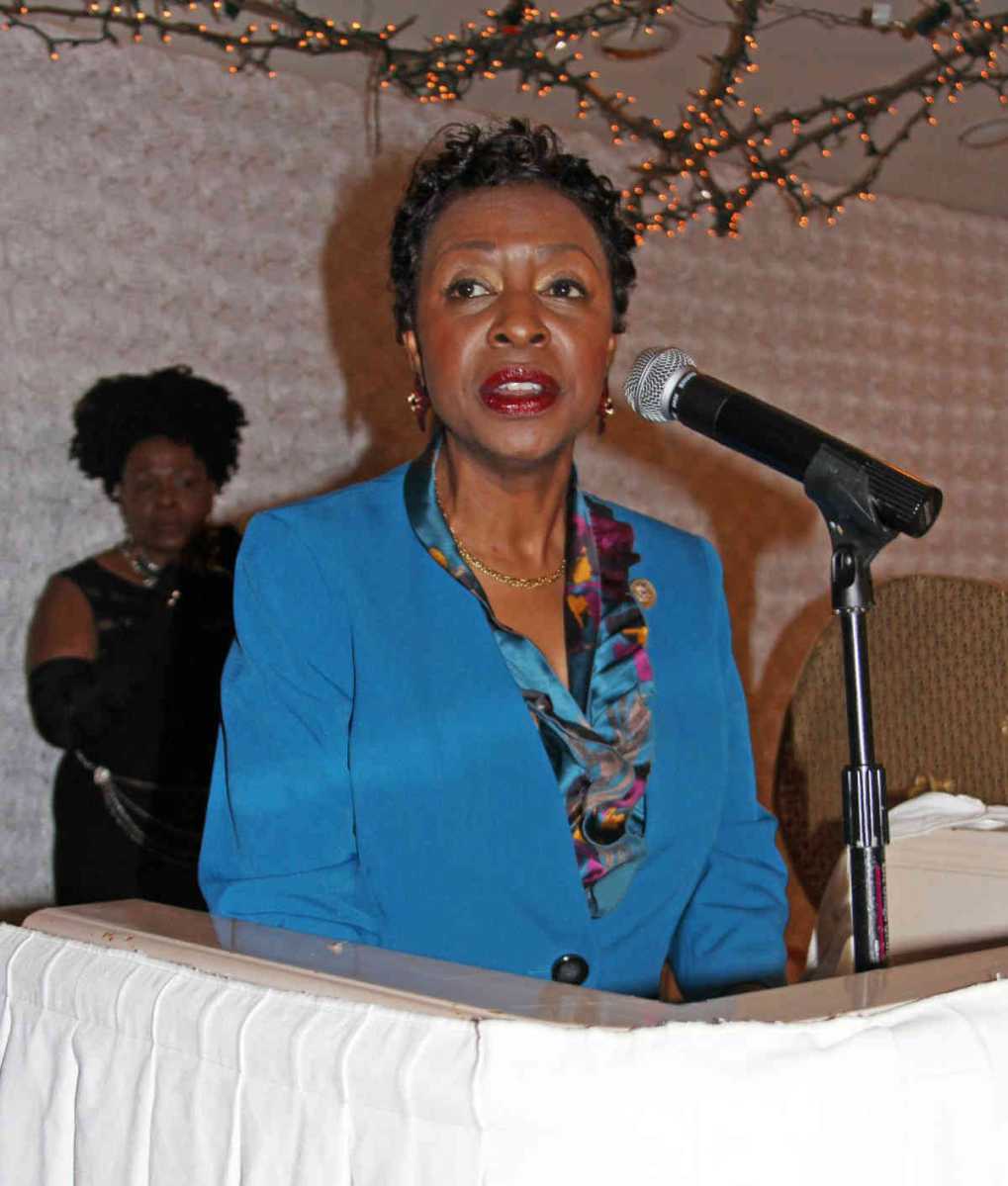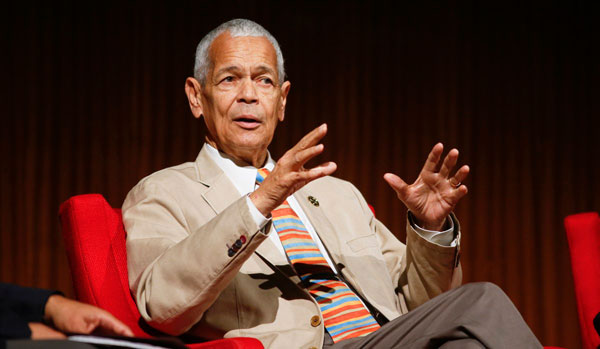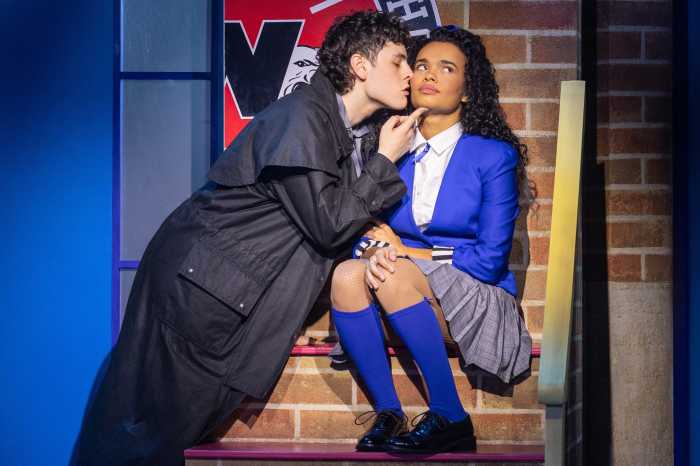By Nelson A. King
Brooklyn Democratic Congresswoman Yvette D. Clarke on Monday expressed outrage over a United States Supreme Court ruling that allowed the Trump administration to deny green cards to Caribbean and other immigrants who may need government aid.
“As a product of the hopes and dreams of an immigrant family, I am outraged by the Supreme Court’s decision to implement the public charge rule – a cruel policy Donald Trump has crafted to jeopardize the lives of our nation’s most vulnerable,” Clarke, the daughter of Jamaican immigrants, told Caribbean Life.
“Historically, the United States has served as a place of refuge for individuals around the world seeking to fulfill the American Dream,” added the representative for the 9th Congressional District in Brooklyn. “Immigrants are our neighbors, our friends, leaders in our communities and even our members of Congress.
“It is disturbing to witness a global leader toying with people’s lives, and we must not stop fighting until Donald Trump is removed from office,” continued Clarke, a very ardent critic of Trump’s immigration policies.
In early October, Clarke had welcomed temporary injunctions by US federal judges in three states blocking the Trump administration’s public charge rule against issuing green cards for Caribbean and other immigrants.
The judges in New York, California and Washington had issued the temporary injunctions against the rule that would make it more difficult for Caribbean and other immigrants to get green cards if they appear to be needing public assistance, such as financial aid, healthcare, food stamps and housing assistance.
Several legislators and immigration advocates had filed legal challenges to Trump’s “Inadmissibility on Public Charge Grounds” rule.
“The rule is simply a new agency policy of exclusion in search of a justification,” wrote Justice George B. Daniels, of the Southern District of New York, stating that the plaintiffs — five organizations that work to aid Caribbean and other immigrants, as well as New York State, New York City, Connecticut and Vermont — are highly likely to be triumphant in their claims against the Trump administration.
“It is repugnant to the American Dream of the opportunity for prosperity and success through hard work and upward mobility,” added Justice Daniels about the public charge rule. “Immigrants have always come to this country seeking a better life for themselves and their posterity. With or without help, most succeed.”
In September, Clarke had joined members of the United States Congressional Tri-Caucus – which includes the Congressional Hispanic Caucus (CHC), Congressional Black Caucus (CBC) and Congressional Asian Pacific American Caucus (CAPAC) – in filing amicus briefs opposing the public charge rule aimed at legal Caribbean and other immigrants who wish to remain in the US but whose dearth of financial resources are deemed likely to make them a burden on US taxpayers.
Amicus briefs are legal documents filed in appellate court cases by non-litigants with a strong interest in the subject matter.
But, in a 5-4 ruling on Monday, the Republican-leaning high court honored the Trump administration’s request to set aside a ruling by a US federal judge barring the so-called “public charge” rule while the merits of the case continue to be argued in lower courts.
The court’s conservative justices, including Trump’s appointees, Brett Kavanaugh and Neil Gorsuch, concurred to permit administration officials to implement the policy, while the liberal justices on the court would have denied the request.
Immigration advocates, therefore, warned that the close court ruling will shut the country’s doors to low-income immigrants and people of color, such as those from the Caribbean.
“I am keeping immigrant families who are wondering how to escape this impossible situation close to my heart today,” said Congresswoman Clarke, who had voted for Trump’s impeachment in the US House of Representatives. “Having to forfeit basic needs such as nutrition, housing and healthcare to get a green card or receive other lawful status is a sacrifice that no family should have to make.”
“This reckless decision will only increase the separation of families and the holes within our immigration system,” she warned. “Lives are at stake and actions have consequences. Donald Trump will go down in history as a corrupt and senseless leader who has put millions of lives in danger as each day passes.
“Here, in Brooklyn, we don’t give up, and I will never stop fighting to ensure that the families who look just like mine are protected and uplifted,” Clarke assured. “We won’t give up until we right this wrong.”
New York Attorney General Letitia James, who had joined several attorneys general across America in challenging the Trump administration’s request, said on Monday that she is still in the process of finding a permanent solution to the public charge rule.
“Generations of immigrants have come to this country with little more than a dream in their pockets, but the president’s Public Charge Rule is an egregious attempt to infringe upon the values of our nation,” she said in a statement.
“We have already received a favorable decision in the district court and are continuing our fight against the Trump administration in the Court of Appeals,” James disclosed.
In a court filing last week, James told the Supreme Court that its “extraordinary intervention” was unwarranted, stating that it would “inject confusion and uncertainty.”
“There is no basis for such extraordinary intervention by this court,” she wrote. “Defendants have not even attempted to identify any urgent need to radically disrupt the status quo that has lawfully governed public-charge determinations for over a century.”
Earlier this month, the US Department of Justice had urged the US Supreme Court to set aside a ruling by a lower court judge prohibiting the implementation of the public charge rule.
In Monday’s ruling, the US Supreme Court abided by the Trump administration request, stating that the lower court’s injunction exceeded federal judges’ authority and that the Supreme Court should review the case.
“The real problem here is the increasingly common practice of trial courts ordering relief that transcends the cases before them,” wrote Justice Gorsuch in the five-page opinion, joined by Justice Clarence Thomas.
“Whether framed as injunctions of ‘nationwide,’ ‘universal,’ or ‘cosmic’ scope, these orders share the same basic flaw — they direct how the defendant must act toward persons who are not parties to the case,” he added.
“The routine issuance of universal injunctions is patently unworkable, sowing chaos for litigants, the government, courts, and all those affected by these conflicting decisions,” Justice Garsuch continued.
























